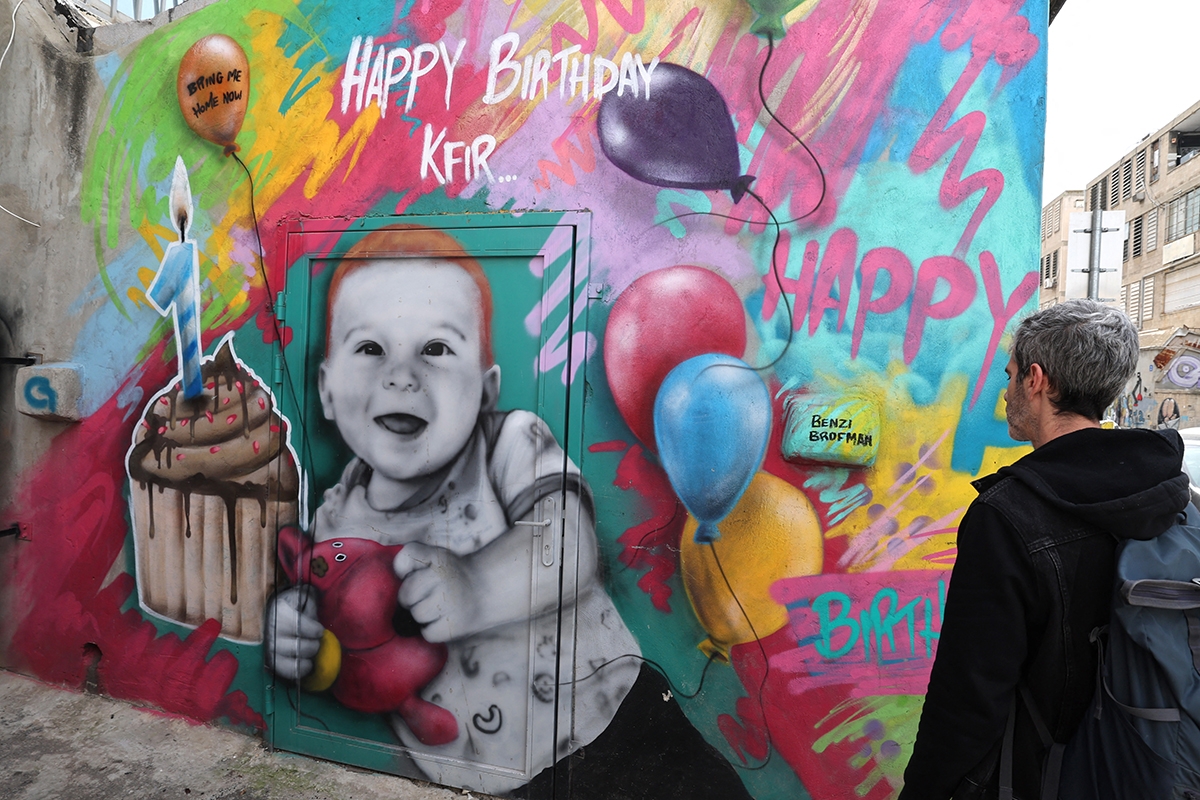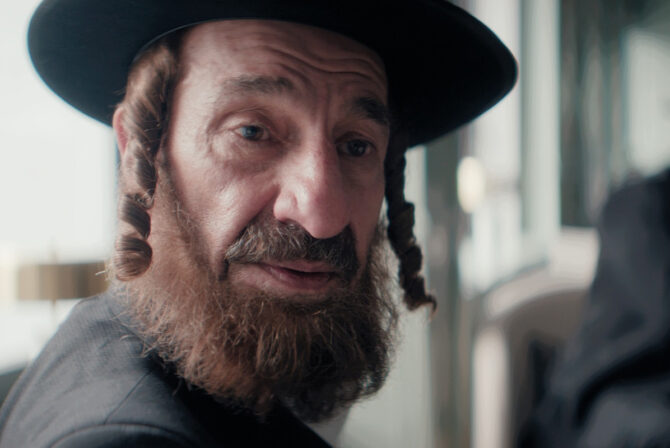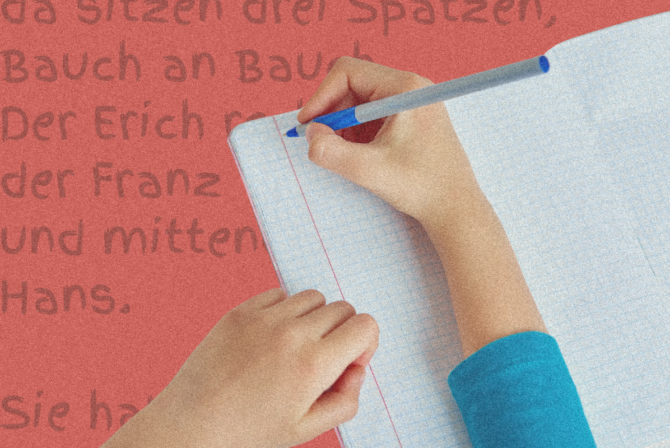The evidence may only be anecdotal right now, with birth rates not necessarily going up in Israel, but since October 7, a lot of people have been thinking about having babies. Some of Israel’s biggest celebrities have chosen to start families, from “Shtisel” and “We Were the Lucky Ones” star Hadas Yaron to “Tehran” actress Niv Sultan, many of them citing October 7 as a catalyst for wanting to honor that ancient Jewish commandment of being fruitful and multiplying. It’s long been said that the best revenge for the slaughter and persecution of Jewish people throughout the ages has been to bring more Jewish babies into the world.
One thing we do know from baby name data coming from Israel is that between October of 2023 and September of 2024, certain names gained new significance and popularity, becoming a part of Israeli and Jewish history. While Jews don’t traditionally name their children after those who were killed in terrible circumstances, like the victims of murder and terror attacks, many have found ways to honor the victims of October 7 and those families and places shaped by it through new names. Many have taken to naming their children after the towns and places hit by the deadliest terrorist attack to have taken place in the Jewish state, and the most devastating attack against Jews since the Holocaust. It’s especially harrowing and prescient in a week when we are laying to rest two children who were killed after being taken hostage on October 7, Ariel Bibas, 4, and baby Kfir, not even a year old when he was murdered.
Here are some names that have gained popularity since October 7 in Israel, and others that we’ve noticed have become more popular and meaningful here in the U.S. since then.
Amichai: This boys’ name stood out to the Israeli Bureau of Statistics as one of the names that gained popularity in the year after October 7. It’s made up of the word “ami,” my people, and “chai,” lives, and is meant to be an ode to our resilience and survival as a people amid all the grief. Other names that have the same resonances are the Hebrew name boys’ names Chai and Chaim (life) and the girls’ names Chaya or Techiya (revival).
Be’eri: One of the hardest hit kibbutzim in the south, Be’eri was home to peace activist Vivian Silver who was killed on October 7 and recently returned hostage Tal Shoham. The name literally means “my well,” and the kibbutz was founded after the Yom Kippur of 1946 and named after Berl Katznelson, one of the founders of Labor Zionism, whose Hebrew name was Be’eri. Between October 7 and September of 2024, 42 girls and 140 boys were given this fairly unique name.
Nova: Four girls in Israel born in the year after October 7 were given the name Nova, after the Supernova music festival, the site of one of the deadly October 7 massacres and from which dozens were taken hostage. The festival was meant to celebrate peace and love, and the name Nova, while not Hebrew, does have an auspicious meaning in this context as the Latin word for “new” that symbolizes a hope for renewal. We’ve definitely noticed its rise in popularity here in the U.S., where it has been in the top 50 most popular baby names since 2018.
Nir: Nir, a Hebrew name that means “plowed field,” has always been a fairly popular Hebrew name in Israel. In the year after October 7, it was given to 31 girls and 40 boys — possibly as an ode to the kibbutz of Nir Oz. A quarter of the members of this kibbutz near the Gaza border were either murdered or taken hostage, including the Bibas family — Yarden Bibas, who came back home in this latest ceasefire deal, and his wife, Shiri, and children, Kfir and Ariel, who will be laid to rest on Israeli soil this week.
Oz: Oz is a Hebrew name that means strength and resilience, and can be another tribute to Nir Oz. The name is mostly a boys’ name, but was given to a handful of girls in the previous Jewish calendar year in Israel.
Tekuma: One little girl was given this name in Israel this past Jewish year, not exactly a common Hebrew name at all but one that stands out as a unique response to October 7. The name means rebirth and revival.
Magen: Another rare name that stands out after October 7, this unisex name may be familiar for those who know the Hebrew name for star of David, Magen David. It means “to protect.” It’s also the name of one of the kibbutzim attacked on October 7, whose members were able to protect it from suffering any casualties.
Or: Names that mean light, or “or” in Hebrew, have gained popularity during what feels for so many like a dark time. Many people with the name Or were affected by October 7, either murdered or taken hostage, like Or Levy, a recently released hostage who earlier this month got to reunite with his small son Almog (Mogi) and discovered that his wife, Eynav, had been killed on October 7. Or, true to the meaning of his name, insisted on joining the protests for the release of the remaining hostages this past week, fighting to bring literal light to those still being held underground like he was. Other names that mean light include Ori (my light, unisex), Uriyah/Uriah (God’s light, unisex) and Maor (a source of light, boy’s name).
Hersh: We’ve noticed quite a few of our readers have given their children the middle name Hersh in honor of the beautiful Hersh Goldberg-Polin, taken hostage from the Nova party and brutally murdered by his captives last year. His fierce mother, Rachel Goldberg-Polin, is forever a part of many of our hearts. For those who are weary of giving the literal name of this peace-loving young man to their children, you can pay tribute to him by using another variation of the Yiddish word for deer — Hersch, Hirsch or Hershel or the Hebrew name with the same meaning, Tzvi. You can also use the female variation of Hinda.
Ari: The lion is a symbol of the tribe of Judah and a Jewish sign of protection and pride. Both my boys have middle names that mean “lion” and so did Ariel (Lion of God) and Kfir (lion cub) Bibas. Other names that pay tribute to the Bibas boys and this Jewish symbol include Lavi and Aryeh, both boys’ names, and girls’ names like Arielle, Ariella and Leviah/Leviyah (lioness).
Tikvah: Tikvah is the Hebrew word for hope, and also the name of Israel’s national anthem. It also works as a way to pay tribute to Shiri Bibas, whose name means “my song.”








